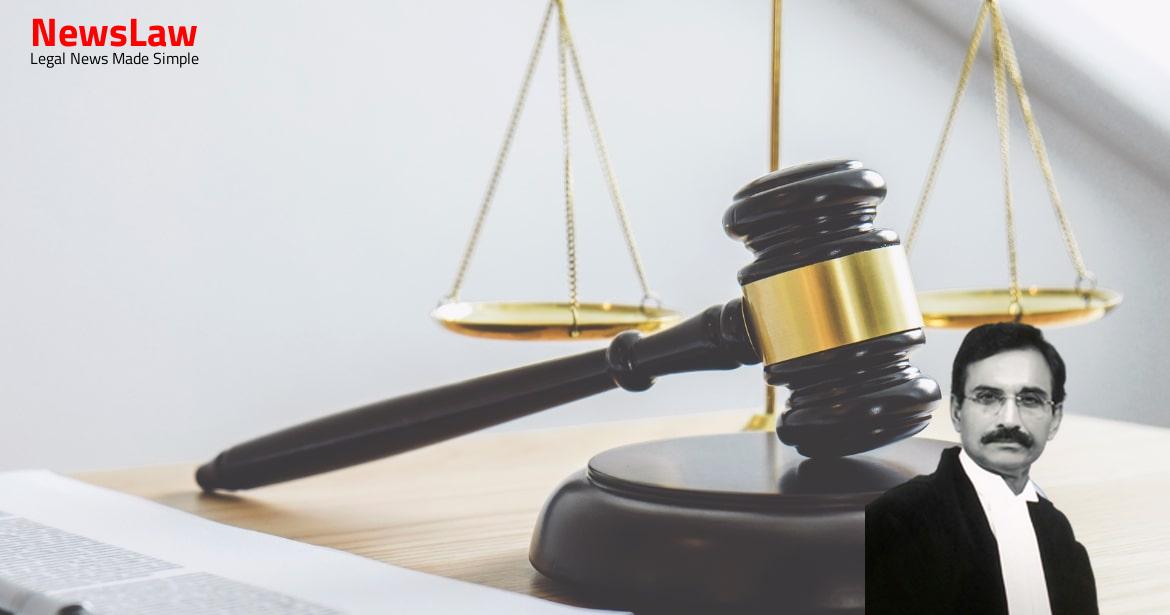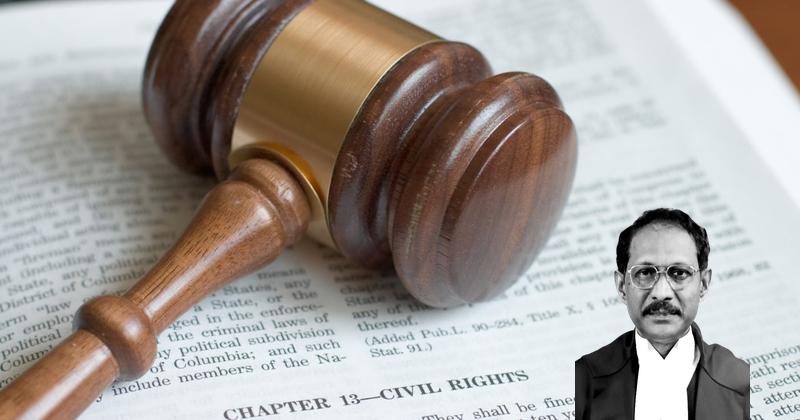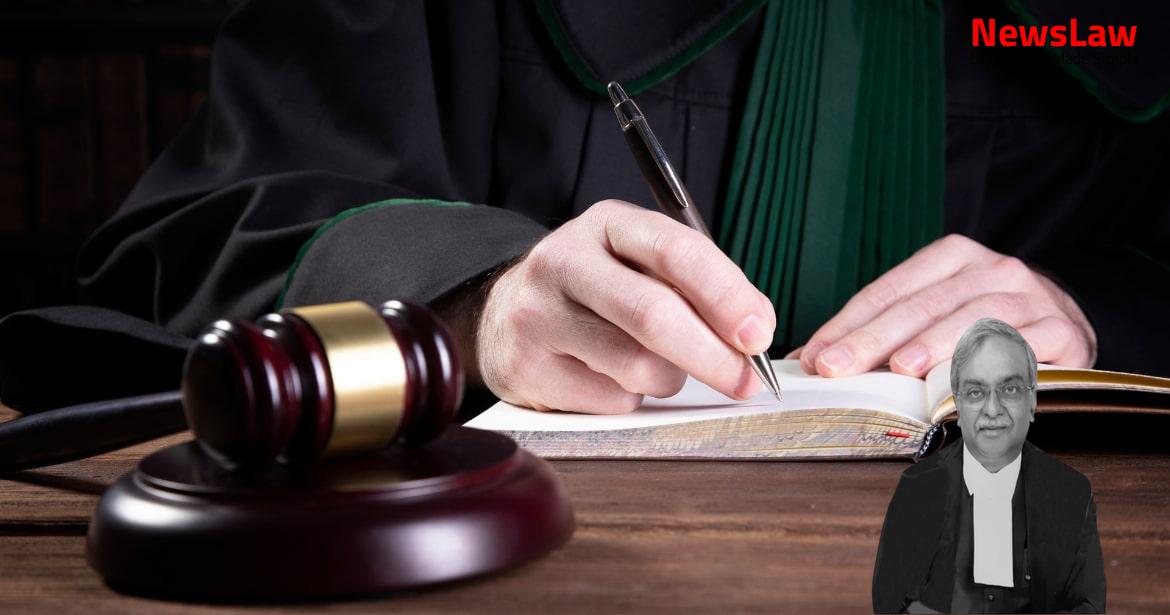Delve into the nuances of legal analysis in a significant military disciplinary case, where the court scrutinized the application of rules and standards. The court’s emphasis on evidence and the benefit of doubt serves as a crucial aspect of the proceedings, highlighting the complexities of military justice.
Facts
- The GOC-in-C directed disciplinary action against the respondent based on the Court of Inquiry findings.
- The respondent was found guilty of several charges by the GCM and sentenced to be cashiered and undergo rigorous imprisonment for three years.
- The Chief of Army Staff confirmed the findings and sentence of the GCM.
- The respondent filed an appeal with the AFT against the GCM’s decision.
- The respondent retired on 30th September 2006 upon reaching the compulsory retirement age of 60 years.
- The Court of Inquiry recommended recordable censure for the respondent and disciplinary action for other officials.
- The respondent’s name was included in the list for disciplinary action based on the Army Commander’s direction.
- The respondent challenged the disciplinary action through a writ petition transferred to the AFT.
- The AFT partly allowed the petition, providing some relief to the respondent.
- The appellants were directed to follow Rule 180 or resort to other provisions instead of relying solely on the Court of Inquiry.
- The High Court of Delhi quashed the proceedings and recommendations of the Court of Inquiry for non-compliance with Rule 180.
- Criminal Appeal No.2169 of 2014 was filed by the Union of India challenging the AFT’s orders.
- Transferred Case (Criminal) No. 1 of 2017 was filed by the respondent challenging the GCM’s decision and sentence.
- The learned AFT modified the sentence of cashiering and imprisonment to dismissal from service as it was deemed harsh.
- The findings of the General Court Martial (GCM) against the respondent were upheld by the learned AFT.
- The respondent filed a writ petition before the High Court of Punjab and Haryana challenging the order of the learned AFT.
- The High Court issued notice on the petition.
- The appellants also filed an appeal before this Court challenging the order of the learned AFT.
Also Read: Presumption of Genuine Endorsements in Cheque Case
Arguments
- Argument presented by the Petitioner’s counsel regarding the violation of sub-rule (2) of Rule 40 read with Rule 102 of the Army Rules.
- Pertaining to the convening officer’s opinion on the availability of officers of the rank of the respondent were not recorded in the convening order as required by the Army Rules.
- The Petitioner’s counsel argued that the Members of the GCM were below the rank of the respondent officer, which allegedly violated the rules of the Army.
- Petitioner’s counsel’s submission on the necessity of recording the convening officer’s opinion in the convening order as per sub-rule (2) of Rule 40 of the Army Rules.
- Referring to the judgement in a similar case, the Petitioner’s counsel presented the contention that officers of the required rank were available, questioning the constitution of the GCM with members below the rank of the respondent.
- The respondent has been given the benefit of doubt by both the GCM and the AFT.
- Not a single charge stands proved beyond reasonable doubt against the respondent.
- The respondent has been convicted without any evidence.
- The appeal filed by the respondent deserves to be allowed and the appellants’ appeal to be dismissed.
- The findings against the respondent are based on conjectures and surmises.
- The standard in GCM is that charges must be proved beyond reasonable doubt.
- The benefit of doubt must be given to the officer in GCM, similar to a criminal trial.
Also Read: Medical Negligence and Compensation: A Landmark Decision
Analysis
- The court of inquiry was directed to examine all associated issues and pinpoint responsibility for lapses, if any.
- The respondent failed to take cognizance of the complaint and direct an inquiry despite the material placed on record.
- The addition of two tendering stations was within the powers of the petitioner as per the established tender inquiry clause of the APO.
- The respondent agreed to the request for two additional tendering stations by M/s GRAINFED, with no objection from audit authorities or PCDA.
- The respondent was found guilty of charges related to allowing additional tendering stations and failing to prevent the consumption of substandard food items.
- The AFT found that there was no wrongful gain or loss due to the approved deviations in tender specifications, leading to savings for the public exchequer.
- The respondent’s actions were found to be prejudicial to good military discipline but not amounting to intentional fraud or causing actual loss or gain.
- The charges related to relaxation of grain specifications and saved public funds were proven to be beneficial with substantial monetary savings.
- Orders passed by the learned AFT and GCM not sustainable in law
- Learned AFT found no fraud or wrongful gain by the respondent
- Unable to appreciate basis of AFT’s conclusion on wrongful gain
- AFT’s finding contrary to material on record
- Doubtful if AFT’s finding is legally sustainable
Also Read: Remand of Writ Petition for Restoration and Decision on Merits
Decision
- Criminal Appeal No 2169 of 2014 filed by the appellants is dismissed.
- Transferred Case (Criminal) No 1 of 2017 filed by the petitioner (respondent in Criminal Appeal No 2169 of 2014) is allowed.
- The order dated 18 February 2011 passed by the GCM holding the petitioner guilty and imposing penalty on him and the impugned order dated 10 October 2013, passed by the learned AFT are quashed and set aside.
- The petitioner is acquitted of all the charges levelled against him.
- The petitioner would be entitled to all pensionary and consequential benefits in accordance with law.
- The arrears of such benefits shall be computed and paid to the petitioner within a period of three months from the date of this judgment.
Case Title: UNION OF INDIA Vs. LT.GEN S.K. SAHNI (2022 INSC 332)
Case Number: Crl.A. No.-002169-002169 / 2014



